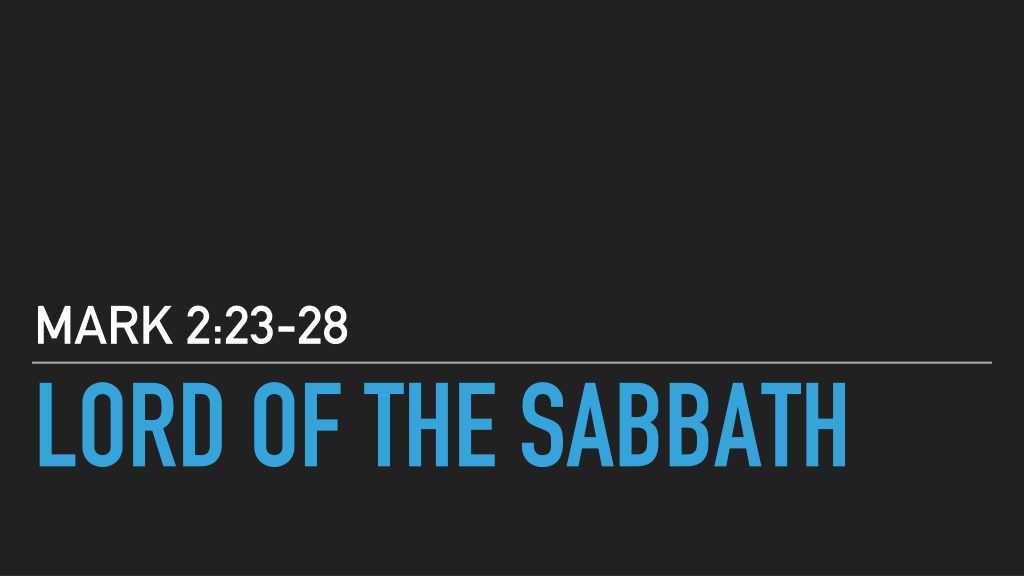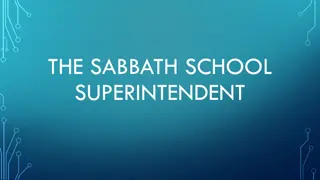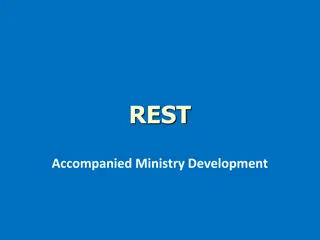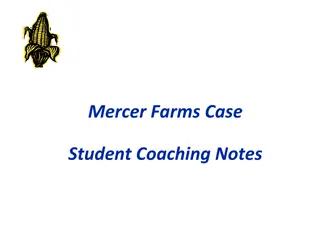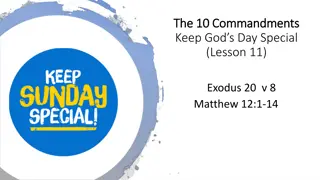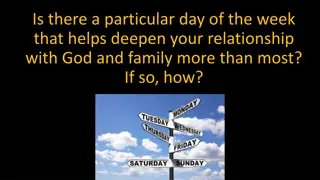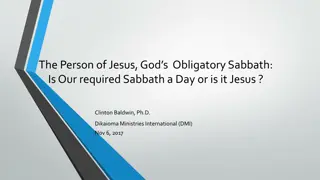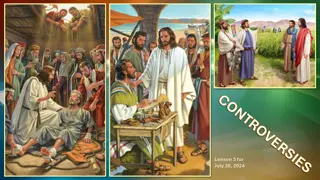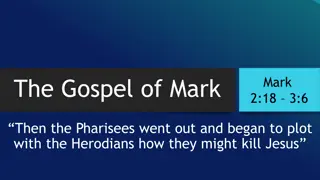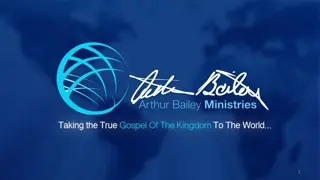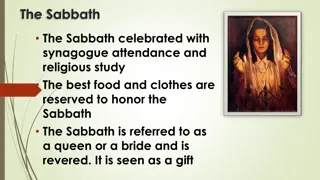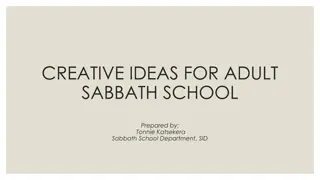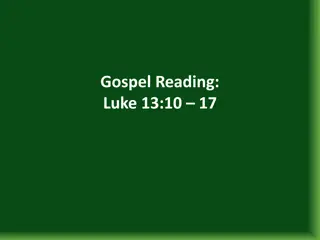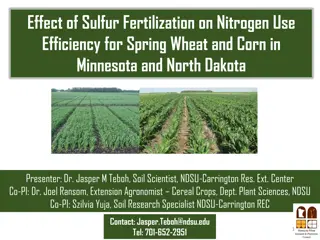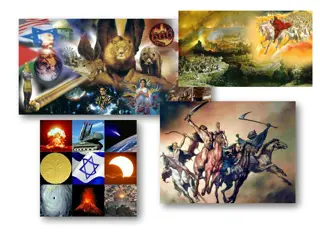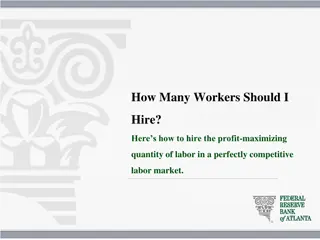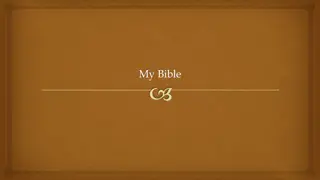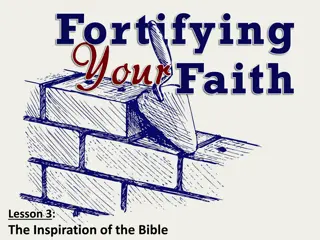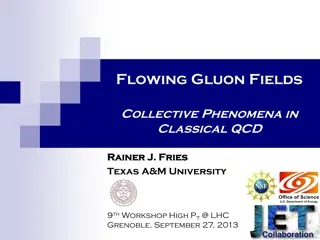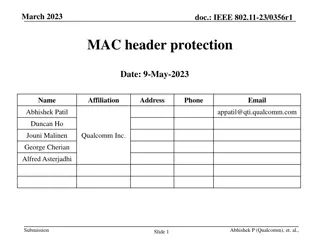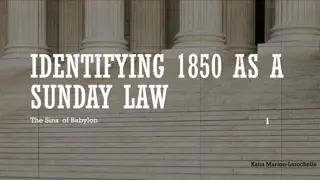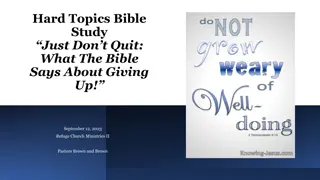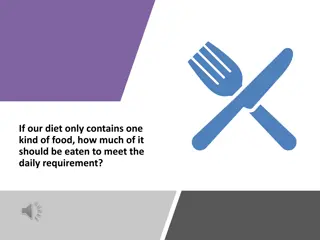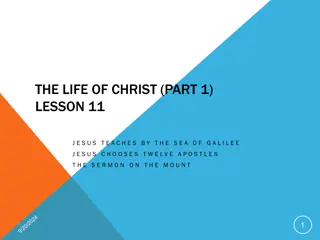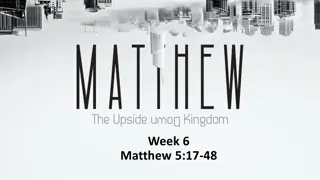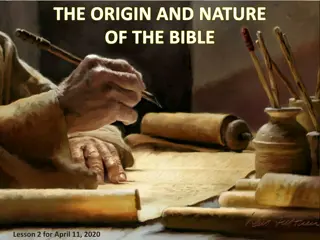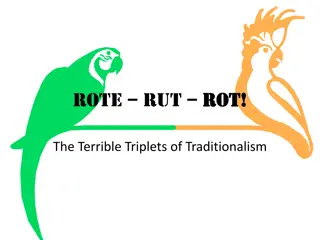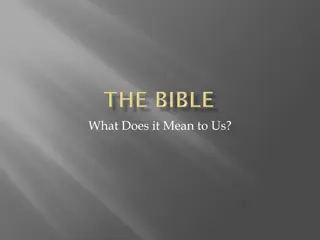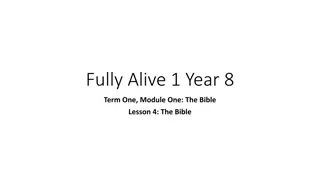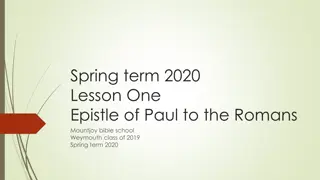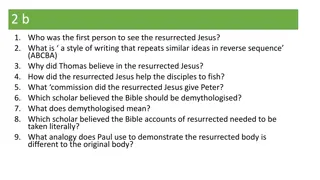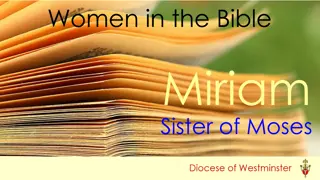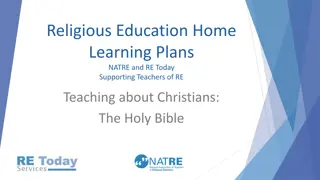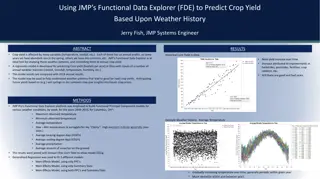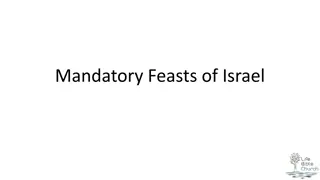Insights from the Bible: The Sabbath Day, Corn Fields, and the Pharisees
Explore the significance of the Sabbath Day, the meaning behind references to corn fields in the Bible, and the role of the Pharisees as a strict religious group in Jewish tradition. Uncover the importance of rest, the symbolism of wheat, and the commitment to religious laws and traditions.
Download Presentation

Please find below an Image/Link to download the presentation.
The content on the website is provided AS IS for your information and personal use only. It may not be sold, licensed, or shared on other websites without obtaining consent from the author. Download presentation by click this link. If you encounter any issues during the download, it is possible that the publisher has removed the file from their server.
E N D
Presentation Transcript
THE SABBATH DAY Exodus 20:8-11 Remember the sabbath day, keep it holy. Six days you will labor, and do all your work. The seventh day is the sabbath of the Lord.
THE SABBATH DAY You shall not do any work. Six days the Lord made heaven and earth, the sea, and all that is in them and rested the seventh day.
THE SABBATH DAY Genesis 2:1-3 The heavens and earth were finished. The seventh day God ended his work which he had made. He rested on the seventh day from all his work which he had made.
THE SABBATH DAY God blessed the seventh day and sanctified it: because he had rested from all his work which God created and made. God declared the seventh day holy. He rested from all his work of creation.
THE CORN FIELDS Corn: When corn is mentioned in the Bible, it refers to wheat, as corn was not known in Bible times. Nelson Bible Dictionary.
THE CORN FIELDS Wheat: The most important cereal grain mentioned in the Bible. Wheat was sown after barley in November or December. The grain was used for bread, and was also eaten parched. It was used for offerings. Jesus compared his death to a grain of wheat.
PHARISEES Strict group of religious Jews who advocated obedience to the most minute portions of the Jewish law and traditions. Very influential in the synagogues.
PHARISEES Agreement with Jesus: Respect for the Law, belief in the resurrection of the dead, committed to obeying God s will.
PHARISEES Disagreement with Jesus: Rejected Jesus claim to be Messiah because he did not follow all their traditions and associated with notoriously wicked people.
(24) And the Pharisees said unto him, Behold, why do they on the sabbath day that which is not lawful? Behold- Greek meaning, used as an interjection to denote surprise. Lo, look, behold see.
CSB- Look, why are they doing what is not lawful on the Sabbath? MSG- Look, your disciples are breaking Sabbath rules!
God gave the commandment, Remember the sabbath day, to keep it holy. Exodus 20:8 You should not do any work, six days shalt thou labor.
The Pharisees had established 39 categories of actions forbidden on the sabbath, based on their interpretation of God s Law and on Jewish custom. Harvesting was one of those forbidden actions.
The Pharisees accused the disciples of Jesus of harvesting on the sabbath. They accused them of breaking the law. The disciples were not harvesting for gain. They were hungry.
Matthew 12:1 At that time Jesus went on the sabbath day through the corn; and his disciples were hungry. Matthew an eye witness, he was with Jesus and one of the disciples that plucked some wheat to eat.
The Pharisees were concerned about the disciples doing something unlawful more than their need of hunger. Their tradition and religion blinded them from the real need and true will of God.
Are we more concerned about tradition and religion than meeting the need?
Physical Needs Hunger Clothing Homelessness Addictions
Spiritual Needs The Gospel to the nations. The Unreached people groups. Lost co-worker, neighbor, family member, classmate, etc. Lost person at the restaurant, bank, store.
AMP- Jesus said to them, Have you never read in the scriptures MSG- Jesus said, Really? Haven t you ever read what David did
Jesus ask the Pharisees if they had read about what David did when he had a need and was hungry. 1 Samuel 21:1-7 - Life Application Bible Ahimelech was the name of Abiathar s father. He met the need of David and his men.
The shewbread or bread of the Presence, symbolized God s presence among his people as well as the loving care that met their physical needs. Every sabbath 12 freshly baked loaves of bread were set out on the table.
The sabbath was made for man. Not man for the sabbath. The Son of man is Lord also of the sabbath.
The purpose of the sabbath is to rest and worship God. The Pharisees had lost sight of the true meaning and purpose. The sabbath was not made to worship the day. The day was made to worship God.
AMP- The Son of Man is Lord even of the sabbath and He has authority over it. MSG- Then Jesus said, We weren t made to serve the Sabbath. The Son of Man is no yes- man to the Sabbath. He s in charge!
HOW CAN WE APPLY Our concern needs to be about meeting the physical and spiritual needs of the people around us, across our state, our country, and around the world.
HOW CAN WE APPLY It starts with praying for the one person you work with, go to school with, neighbor, family member. Pray for the nations, the unreached people groups. The lost in our state and country.
HOW CAN WE APPLY We can not be blinded by religion and tradition like the Pharisees that we miss the opportunity to meet the physical and spiritual need of someone.
